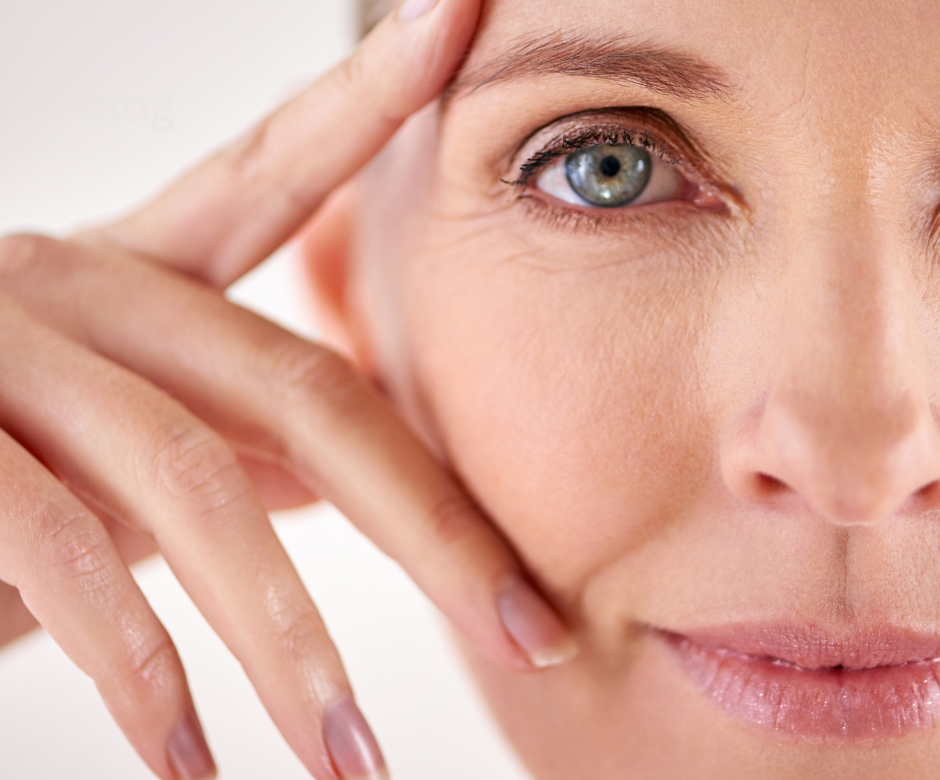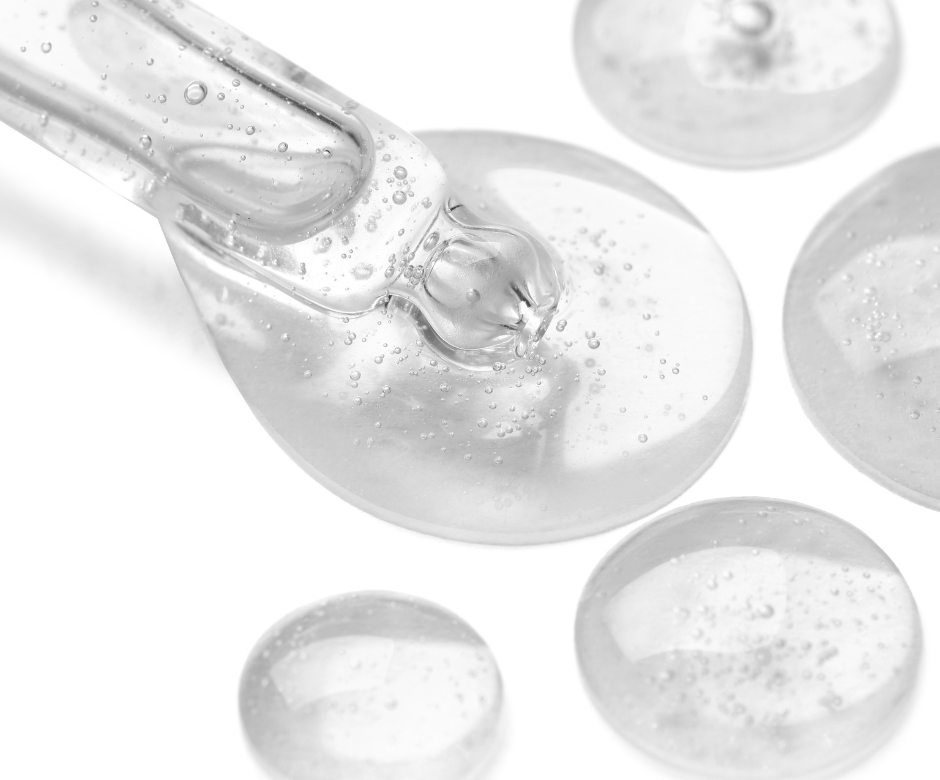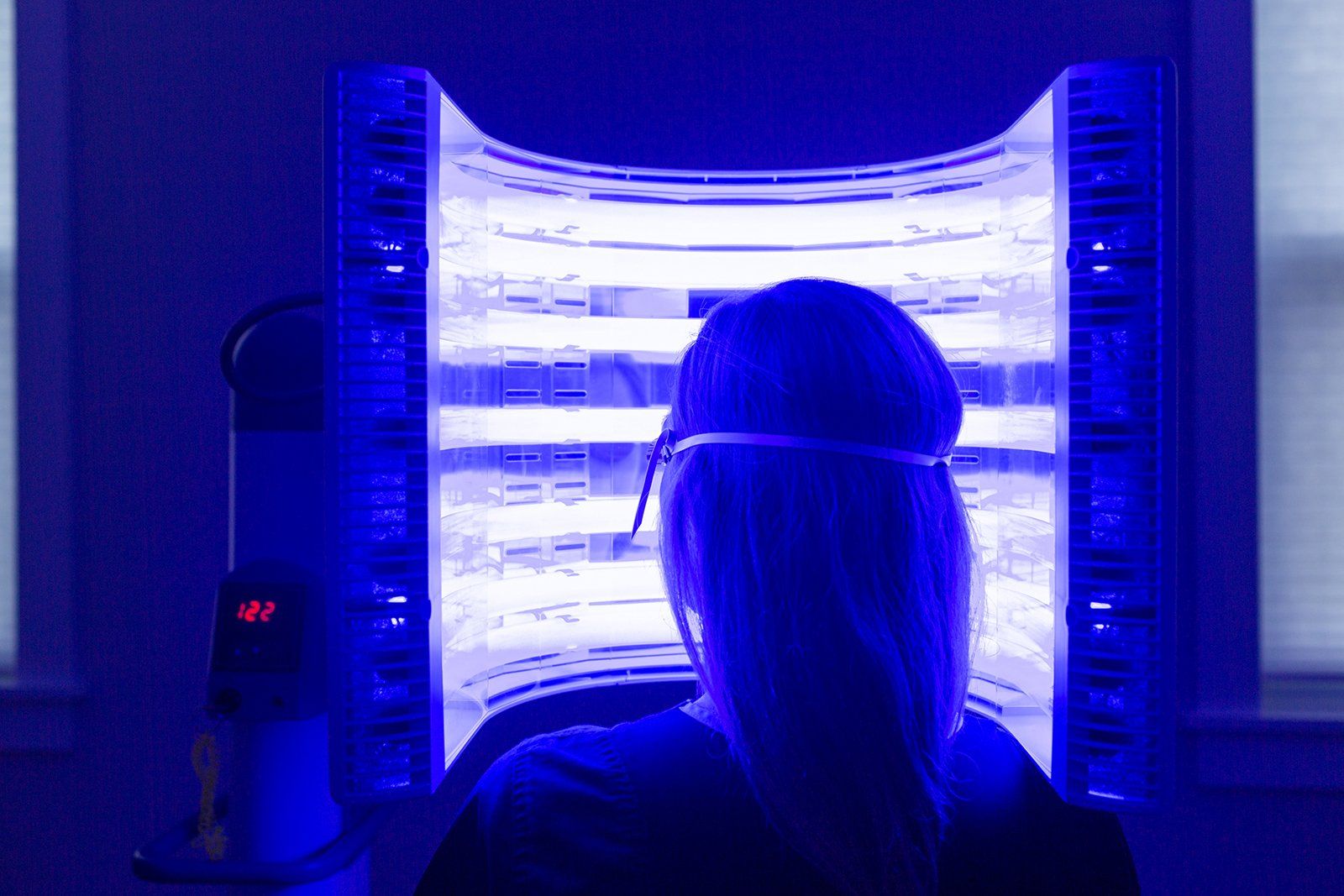Skin Conditions that Keep People from Loving Fall
We all love fall, right? The beautiful color change, pumpkin spice lattes and seasonal activities are ideal for everyone. No? Unfortunately for some, the cool, crisp temperatures of autumn bring on more stress due to what it does to their skin. There are a handful of fall skin concerns and we can help you treat them.

Here are some common skin conditions that pop up as the weather transitions to cool and dry temperatures, along with dermatologist backed-tips on how to change up your skincare routine to help:
Sun Damage
After spending the summer under harsh UV rays and you lose your summer glow you may begin to notice changes in pigmentation and texture, both signs of sun damage. In some cases you may notice signs of skin cancer.
How to treat sun damage: October is a prime time to repair and rejuvenate your skin. Your first stop if you have concerns of skin cancer is to see your local dermatologist for an in-office evaluation and any necessary treatment. Regardless of the forecast, we can’t express enough the importance of using SPF year round to protect your skin. The use of antioxidant serums will also help protect against free radicals and sun damaged skin. Vitamin C is a good source to help address discoloration and skin tone.
For patients with a history of skin cancer looking to reduce the risk of developing a new skin cancer in the future, we recommend vitamin B3 (Nicotinamide), 500mg twice daily. It is an over the counter, inexpensive supplement shown to reduce the risk of developing a new squamous-cell or basal-cell skin cancer by 23%.
Dry Skin
Humidity has a significant impact on our skin. While the temperature and humidity decrease, so does the moisture in our skin, leaving it dry and often very uncomfortable.
How to treat dry skin: There are quite a few simple changes that can be made to your routine to help address dry skin and keep your skin glowing. Using a humidifier in your home to add moisture back into your living space, taking quick lukewarm showers to avoid damaging the cells that lock in moisture in your skin, and switch to a thicker moisturizer. The best time to apply moisturizer is right after showering or bathing, when your skin is still damp.
Dandruff
Some people may think of dandruff as a result of dry skin, when it’s actually due to the oily skin of the scalp. The dandruff commonly is caused by either the natural yeast of fungus called Melassezia or a seborrheic dermatitis and reaction to certain hair products.
How to treat dandruff: Medicated and over the counter shampoos can be helpful, like Head and Shoulders, Selsun Blue, Neutrogena T Sal or Neutrogena T Gel. Tea tree oil can also help alleviate dandruff, however, tea tree oil should be used with caution, mixing just a few drops with a carrier oil.
Chapped Lips
While the skin on your lips are quite thinner than other skin on your body, they are prone to dryness. Too little humidity in the air during the cooler months can aid in dry, cracked lips.
How to treat chapped lips: There are several ways to bring moisture back into our lips. We recommend making it a priority to drink plenty of water, apply lip balm, protect your lips from cooler weather with a scarf and again adding moisture back into your home with a humidifier. Avoid lip balms with menthol when your lips are cracked and dry as menthol can be irritating for cracked skin.
Eczema
Eczema is one to keep an eye on as it can begin to flare up in the fall and become worse in the winter. The condition can become itchy and appear as inflamed patches on the arms, elbows, knees, cheeks and scalp.
How to treat eczema: Many things can create flare-ups so routine changes would include skipping hot bath or showers, using a gentle soap, applying a thick moisturizer, avoiding irritating fabrics, staying hydrated, taking a vitamin D supplement and maintaining moisture in your home with a humidifier.
Have you experienced skin problems during the fall and winter months? Hopefully you find these tips helpful but please also take proactive step and refer to your local dermatologist to receive an appropriate medical evaluation.
Share this article with friends!

How the Desjarlais Experience Can Help Manage GLP-1 Side Effects for a Healthier Weight Loss Journey









